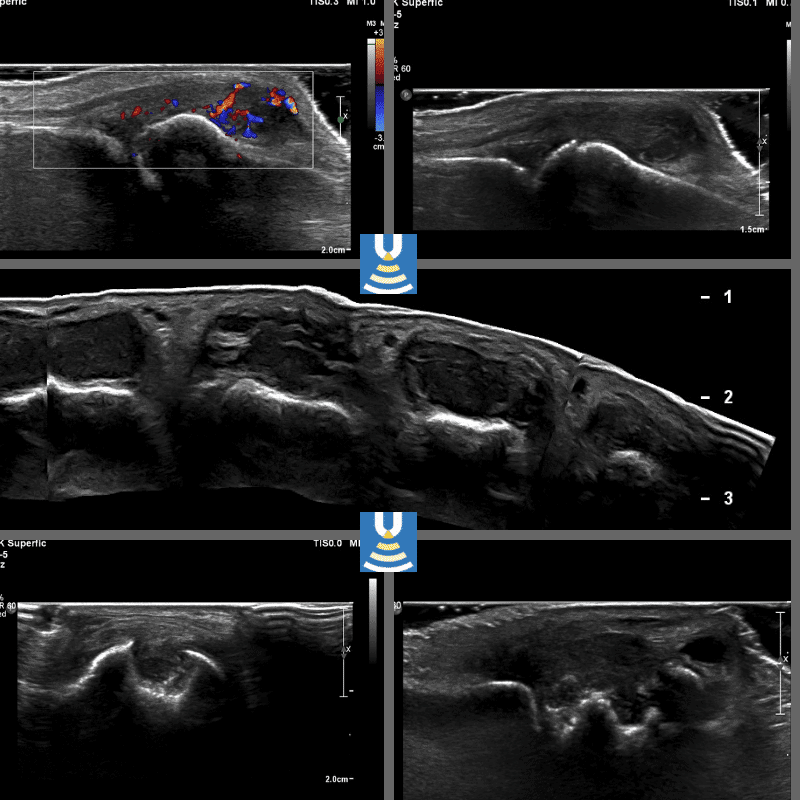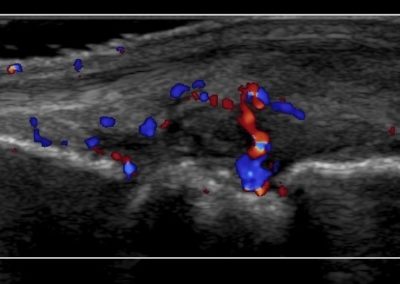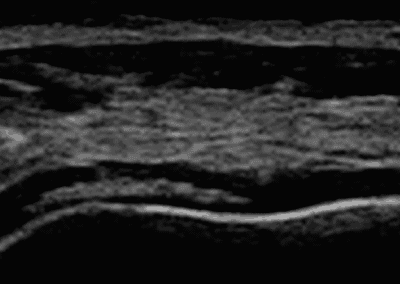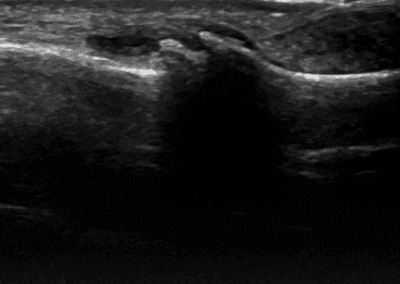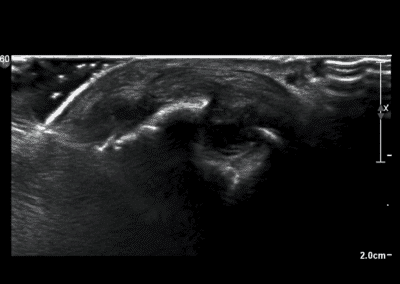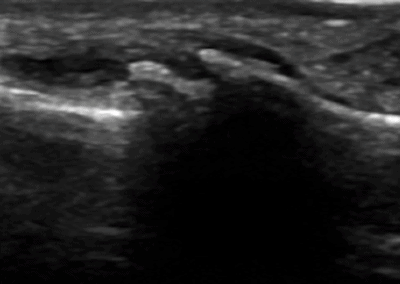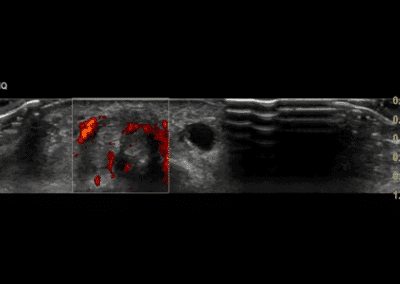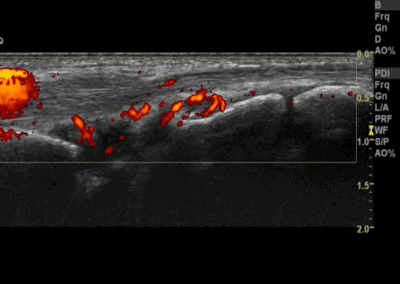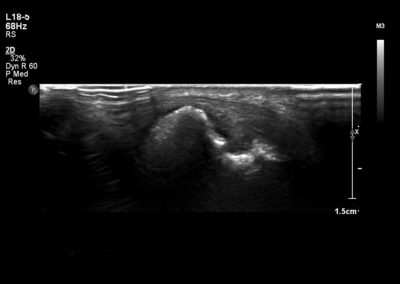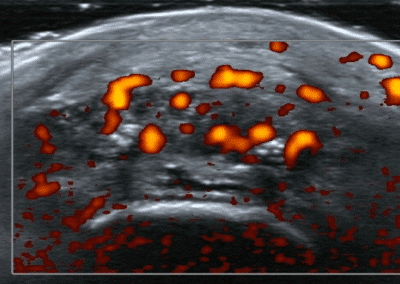Ultrasound in Rheumatology
How is ultrasound used for Rheumatological conditions?
Being able to use ultrasound in rheumatology at the point of care is currently revolutionising the management of patients suffering from inflammatory rheumatic diseases such as rheumatoid arthritis, psoriatic arthritis and other peripheral spondyloarthropathies. This means that an early diagnosis can be established (at the point of care), and subsequent treatment can be initiated which has an evidence base for improving disease outcomes, in these largely chronic and debilitating diseases.
Inflammatory rheumatic diseases present with either synovitis/synovial hypertrophy, synovial effusions, tenosynovitis or erosive disease or commonly a combination of all these findings. Ultrasound has shown its usefulness and value in early inflammatory arthritis by being able to accurately detect these changes with either superior or equivalent accuracy compared to other imaging modalities such as x ray and MRI. The obvious advantages of ultrasound are that it is performed in real time and is well tolerated.
Degenerative conditions such as osteoarthritis can present in a similar fashion to inflammatory arthritis and ultrasound has shown its usefulness in identifying pathognomic osteophytic lesions and thus importantly being able to differentiate between these diseases. The absence of disease pathology on ultrasound is useful in the management of patients who may have a fibromyalgia/chronic pain syndrome.
Register to receive our newsletter including case studies
Ultrasound in Rheumatology: Educational articles
Dr Qasim Akram has contributed a series of informative, educational articles on the topic of Ultrasound in Rheumatology. We are very grateful for his support, and he is teaching on the Introduction to Rheumatology in Ultrasound course
